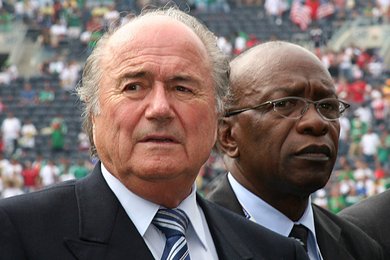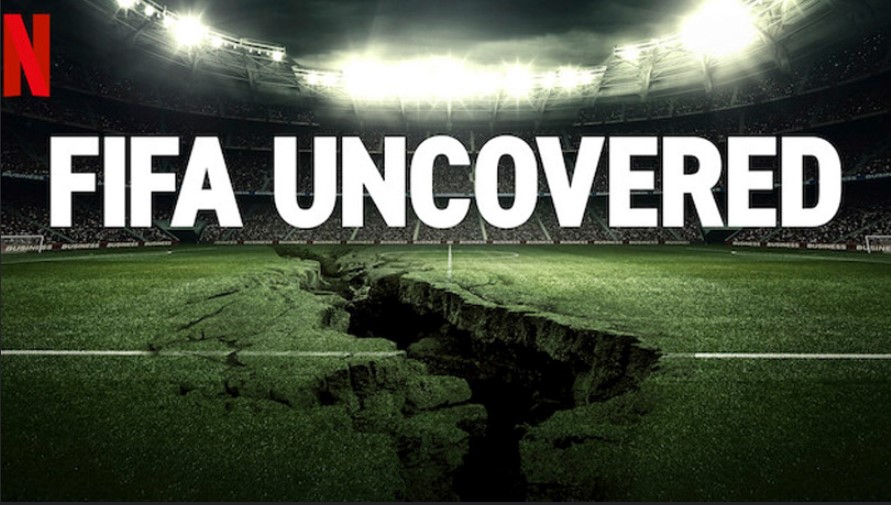Mark Langabeer (Hastings and Rye Labour Party member) reviews the first episode of a recent Netflix documentary series.
This episode of FIFA Uncovered (see here) gives an account of the corruption scandal that rocked the footballing world in 2015. FIFA is the governing body of world football (soccer). It’s responsible for the world Cup and decides who will host the tournament.
At the time of writing, England have progressed to the last 16. According to the BBC, nearly 17 million households watched England v Wales in the final game in the group stage. Football is not just the most popular sport in the UK, it’s the most popular game worldwide. Described by many as the ‘beautiful game’, its governorship is far from beautiful.
The programme traces the rise of FIFA. Established in 1904 by seven European nations, it has grown into a worldwide organisation. However, the governing body was an amateur organisation until 1974. Its president was Sir Stanley Rous, previously an English referee. He faced an election bid from Joao Havelange, a former athlete turned businessman from Brazil. Rous was particularly unpopular with the majority of African nations because of his stance on South Africa and apartheid. His opposition to a boycott, and Havelange’s promise to invest in the developing world, cost him the election.
At this stage, FIFA had no money. In 1976, Coca-Cola became a sponsor and as one commentor stated, capitalism had arrived in world football. It was followed by Adidas, who signed a £1 million marketing contract with FIFA. At a later stage, the boss at Adidas, set up his own company and bought up all the marketing rights which included the broadcasting of the World Cup.
Evidence of corruption
FIFA is made up of one delegate from each nation’s footballing associations. So it meant that the South American continent had ten votes. The Caribbean Islands had twenty votes. There was already evidence of corruption. The decision to host the 1978 World Cup in Argentina, a military dictatorship that acted brutally against any dissenters, was, to put it mildly, a controversial decision.

Havelange retired in 1982 and an election was held. The winner was Sepp Blatter who promised the African delegates that he would support the hosting of the World Cup on the African continent. It was under his leadership, that corruption thrived, particularly involving the poorer nations.
Many projects that aimed to develop football at grassroots level never materialised. According to this programme, bribery was routine. After decades of corrupt activities, the FBI and Swiss police arrested a number of board members for racketeering and money laundering. One commentator described the scale of the charges as on a par with mobsters.
In my view, football has become a source for profiteering. It’s not just a sport, it’s big business. It’s also tied up with national prestige. FIFA Uncovered interviewed a former Trinidad and Tobago player who was in dispute with Jack Warner, an Executive Member of FIFA and a close ally of Blatter, over player bonuses during the World Cup. The players were cheated and he was also barred from playing club football. Many years later they were compensated by the state, not by the likes of Warner and his associates.
I support the original ideas of the Bolsheviks and other early socialists. Sport is an interest and not a job of work. In a socialist society workers would have the freedom and leisure to develop all their talents. It certainly shouldn’t be a business. These ideals were mangled by the rise of Stalinism. The bureaucrats in the Kremlin used sport as a means of bolstering their prestige. In this respect, they shared the outlook of imperialism.
When sport becomes a business, it becomes ugly. It mirrors a system that is based upon exploitation, a dog-eat-dog world.



